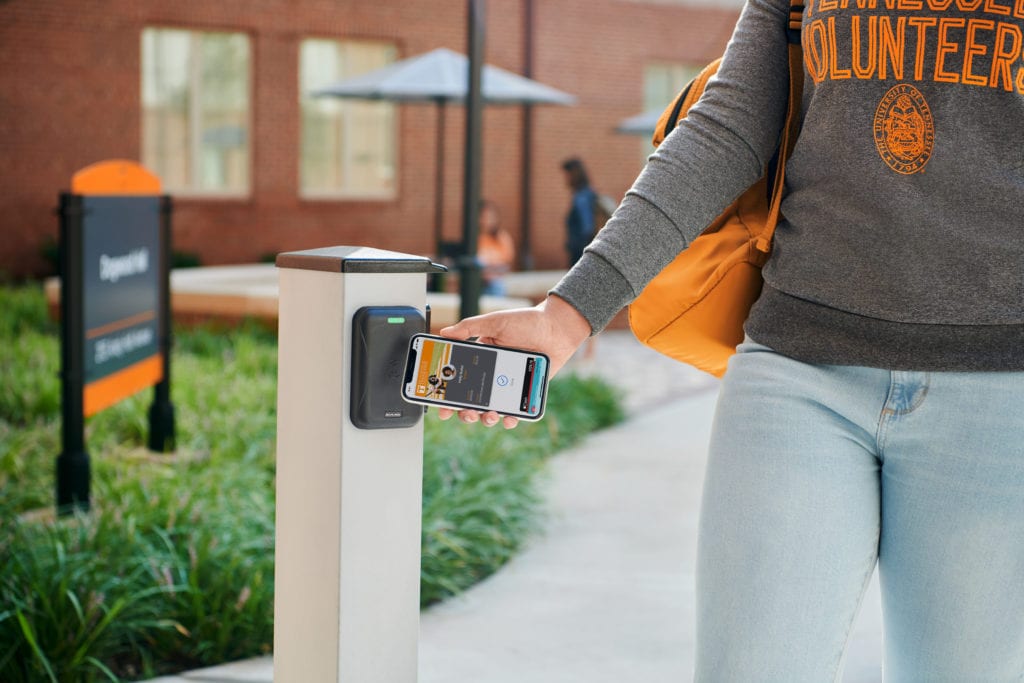
In the wake of HID Global’s announcement that its technology would help students at South Carolina’s Clemson University to use virtual student ID cards on their iPhones and Apple Watches, Apple has revealed that it’s working to bring this functionality to many more colleges and universities this autumn.
Not only Clemson University, but also Georgetown University, University of Tennessee, University of Kentucky, University of San Francisco, University of Vermont, Arkansas State University, South Dakota State University, Norfolk State University, Louisburg College, University of North Alabama, and Chowan University will see Apple’s mobile ID technology arrive on their campuses in the coming school year. The development could bring this technology to over 100,000 college students, who will be able to use their mobile devices to identify themselves to school administrators, access dorm facilities, and even make cafeteria purchases.
The efforts will complement mobile, virtual student ID systems already in place at Duke University, University of Alabama, University of Oklahoma, Johns Hopkins University, Temple University, Mercer University, and Marshall University. And so far, it appears that this technology is getting popular.
“We know students love this feature,” asserting Apple Internet Services VP Jennifer Bailey in a statement announcing the new deployments. “Our university partners tell us that since launch, students across the country have purchased 1.25 million meals and opened more than 4 million doors across campuses by just tapping their iPhone and Apple Watch.”
Some of the school deployments have been undertaken in collaboration with HID Global, thanks to its Seos-enabled virtual credential technology as well as the electronic lock solutions of its parent company, ASSA ABLOY. Other deployments, meanwhile, are seeing Apple collaborate with CBORD and Allegion.
All of this means that student life gets a little bit easier and more convenient; and because school credentials are kept secure on the iPhone and Apple Watch with two-factor authentication, the deployments also amount to a security improvement for students and school administrators alike.

Follow Us